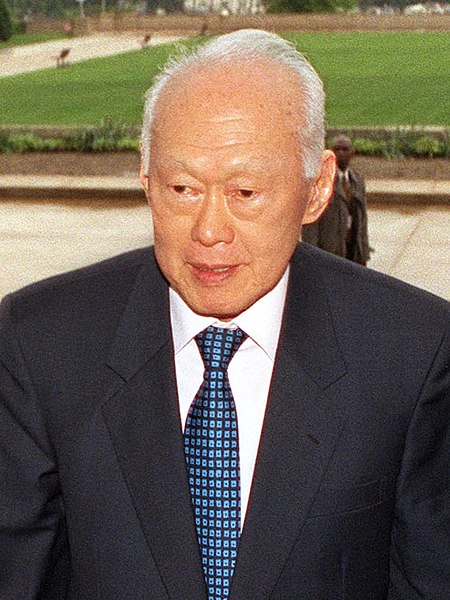 |
| Lee Kuan Yew (Image: Wiki Commons) |
By Shannon Tiezzi
Lee Kuan Yew’s influence helped shape the China we know today.
With the passing of Lee Kuan Yew, Singapore’s first prime minister and one of the most influential Asian politicians, leaders and media outlets all over the world have put in their two cents on his legacy. In the Western world, analysis of his influence is generally mixed; theWashington Post, for example, led off its piece by calling Lee “the democratic world’s favorite dictator.” But in China, where Lee’s mix of authoritarian governance and economic reform proved hugely influential, reflections are far more glowing.
China’s Foreign Ministry issued a statement on March 23 saying that “the Chinese side deeply mourns the loss of Mr. Lee Kuan Yew.” The statement praised Lee as “a uniquely influential statesman in Asia and a strategist embodying oriental values and international vision.”
For China, that high praise might actually be underestimating Lee’s importance. After the death of Mao Zedong, Beijing’s leaders knew that Maoist philosophy was not the way forward for China – but they were loath to adopt Western alternatives such as democracy and a free market economy. In Lee’s Singapore, Chinese leaders found an alternative path, a path they could sell as being uniquely suited for Asian (or “oriental,” as China’s FM put it) values. That choice, to combine economic reforms with authoritarianism, shaped China as we know it today.
Read the full story at The Diplomat
